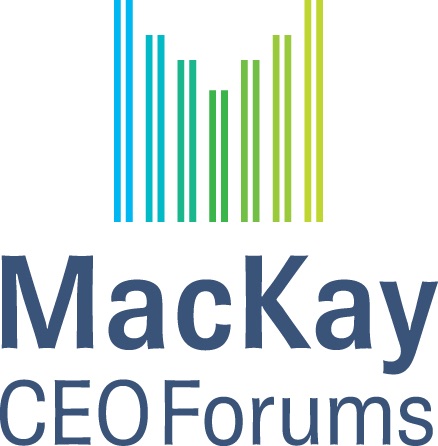

MacKay CEO Forums

British Columbia, Canada
September 2018
Management consultant - for-profits
Service with Minor Environmental Footprint
Canada
MacKay CEO Forums founded in 2005 by Dr. Nancy MacKay, has grown to include over 1,000 members across Canada. The organization is dedicated to populating the world with inspiring leaders. MacKay CEO Forums brings together forward-thinking, action-oriented CEOs, Executives, and Business Owners from diverse industries, who participate in Canada’s most impactful, time-efficient, and professionally led peer learning groups. The Forum Chairs at MacKay CEO Forums are award-winning coaches, consultants, and advisors renowned within the Canadian business community. The organization hosts regular events designed to offer Canadian business leaders the leadership EDGE—Educate, Discover, Grow, and Execute—through high-impact peer learning experiences. In addition to serving Canada’s leading companies, MacKay CEO Forums offers complimentary membership to non-profit organizations within each peer group. This ensures that non-profits have representation and access to the same valuable peer learning opportunities, fostering collaboration and shared growth alongside the nation’s top business leaders. MacKay CEO Forums is known for cultivating a high-accountability culture that encourages Members to become inspiring leaders. Members share their most pressing issues at every meeting, m
Overall B Impact Score
Governance 15.1
Governance evaluates a company's overall mission, engagement around its social/environmental impact, ethics, and transparency. This section also evaluates the ability of a company to protect their mission and formally consider stakeholders in decision making through their corporate structure (e.g. benefit corporation) or corporate governing documents.
What is this? A company with an Impact Business Model is intentionally designed to create a specific positive outcome for one of its stakeholders - such as workers, community, environment, or customers.
Workers 29.1
Workers evaluates a company’s contributions to its employees’ financial security, health & safety, wellness, career development, and engagement & satisfaction. In addition, this section recognizes business models designed to benefit workers, such as companies that are at least 40% owned by non-executive employees and those that have workforce development programs to support individuals with barriers to employment.
Community 45.1
Community evaluates a company’s engagement with and impact on the communities in which it operates, hires from, and sources from. Topics include diversity, equity & inclusion, economic impact, civic engagement, charitable giving, and supply chain management. In addition, this section recognizes business models that are designed to address specific community-oriented problems, such as poverty alleviation through fair trade sourcing or distribution via microenterprises, producer cooperative models, locally focused economic development, and formal charitable giving commitments.
What is this? A company with an Impact Business Model is intentionally designed to create a specific positive outcome for one of its stakeholders - such as workers, community, environment, or customers.
Environment 9.0
Environment evaluates a company’s overall environmental management practices as well as its impact on the air, climate, water, land, and biodiversity. This includes the direct impact of a company’s operations and, when applicable its supply chain and distribution channels. This section also recognizes companies with environmentally innovative production processes and those that sell products or services that have a positive environmental impact. Some examples might include products and services that create renewable energy, reduce consumption or waste, conserve land or wildlife, provide less toxic alternatives to the market, or educate people about environmental problems.
Customers 9.9
Customers evaluates a company’s stewardship of its customers through the quality of its products and services, ethical marketing, data privacy and security, and feedback channels. In addition, this section recognizes products or services that are designed to address a particular social problem for or through its customers, such as health or educational products, arts & media products, serving underserved customers/clients, and services that improve the social impact of other businesses or organizations.
What is this? A company with an Impact Business Model is intentionally designed to create a specific positive outcome for one of its stakeholders - such as workers, community, environment, or customers.